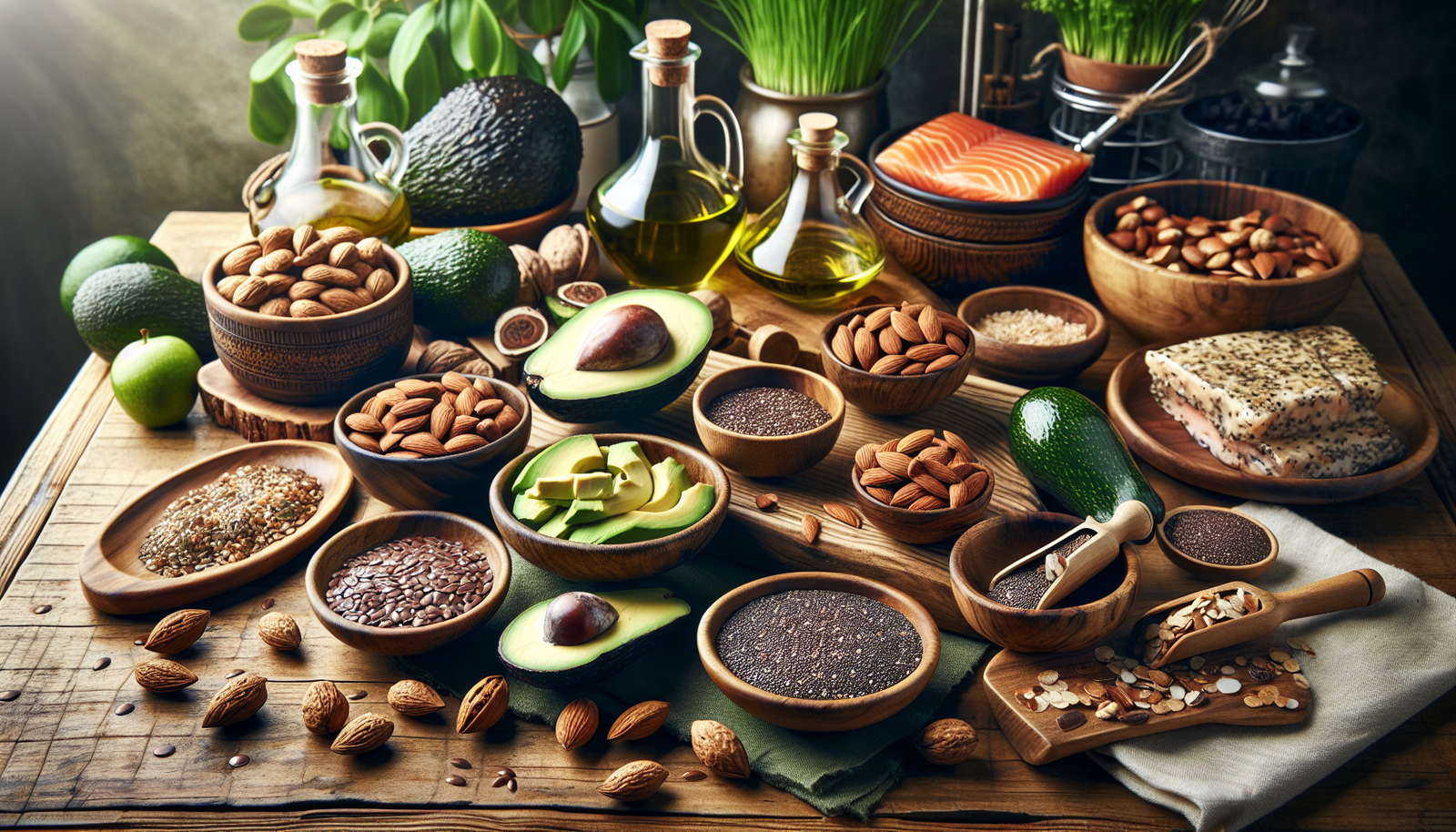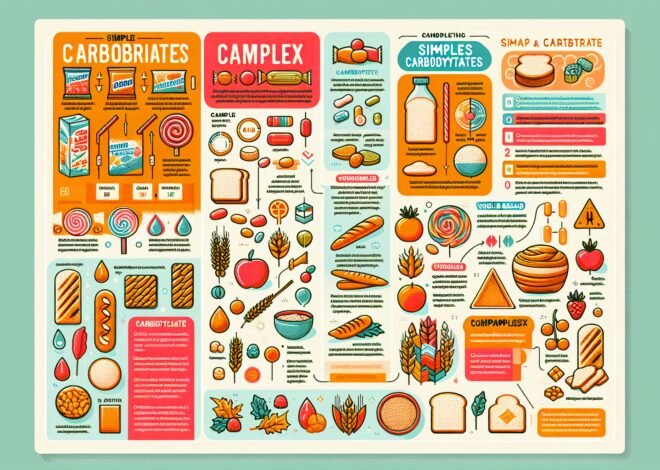
How to Incorporate Healthy Fats in a Balanced Diet
Healthy fats in a balanced diet are essential for overall wellness, aiding in nutrient absorption and brain function. Surprisingly, research shows that incorporating healthy fats can even aid in weight management. This post will guide you on how to include these fats effectively, ensuring you reap their myriad benefits. From avocados to nuts, discover easy ways to enrich your meals without overindulging. Embrace the power of healthy fats and transform your diet for the better.
Understanding the Importance of Healthy Fats in Your Diet
Healthy fats are essential for maintaining optimal health and well-being. They play a crucial role in body functions, from supporting cell growth to providing energy. Understanding these fats, their benefits, and their impact on heart and brain health is key to maintaining a balanced diet.
What are Healthy Fats and Their Benefits
Healthy fats, also known as unsaturated fats, include monounsaturated and polyunsaturated fats. These fats are vital for various body processes. They help in absorbing vitamins, reducing inflammation, and supporting brain function. Incorporating healthy fats can enhance your energy levels and improve your overall health.
- Monounsaturated Fats: Found in olive oil, avocados, and certain nuts, these fats help lower bad cholesterol levels.
- Polyunsaturated Fats: Present in fish, flaxseeds, and walnuts, they provide essential fatty acids like omega-3 and omega-6.
Including a balanced amount of these fats in your diet can lead to numerous health benefits. They support cell growth, protect organs, and maintain body temperature. Moreover, they aid in absorbing fat-soluble vitamins such as A, D, E, and K, which are crucial for your body’s proper functioning.
Differentiating Between Good and Bad Fats
Not all fats are created equal. It’s important to differentiate between good and bad fats to make informed dietary choices. While healthy fats contribute positively to your health, trans fats and saturated fats can be detrimental.
- Trans Fats: Often found in processed foods, these fats can increase bad cholesterol levels and contribute to heart disease.
- Saturated Fats: Found in animal products and some plant oils, they can increase cholesterol levels if consumed in excess.
Limiting bad fats and focusing on healthier options can improve your cardiovascular health and reduce the risk of chronic diseases. Making mindful choices about the fats you include in your diet is a powerful step towards maintaining a healthy lifestyle.
Impact of Healthy Fats on Heart and Brain Health
Healthy fats have a significant impact on both heart and brain health. They play a crucial role in reducing inflammation and improving cholesterol levels, which helps protect your heart.
- Heart Health: Consuming omega-3 fatty acids can lower triglyceride levels, reduce blood pressure, and prevent plaque buildup in arteries.
- Brain Health: Omega-3s are known for their role in supporting cognitive functions and may help in preventing neurodegenerative diseases.
Incorporating healthy fats in your diet can contribute to improved mood, memory, and overall cognitive performance. These fats support the integrity of brain cells, enhancing neural communication and reducing the risk of age-related decline.
Best Sources of Healthy Fats for Balanced Nutrition
A balanced diet requires a variety of nutrient sources. Knowing where to find healthy fats can enhance your nutritional intake. Both plant-based and animal sources offer a wealth of options to meet your dietary needs.
Discovering Plant-Based Sources of Healthy Fats
Plant-based diets provide numerous sources of healthy fats. These fats support heart health and provide essential nutrients.
- Avocados: Rich in monounsaturated fats and fiber, avocados are a versatile addition to any meal.
- Olive Oil: A staple in the Mediterranean diet, olive oil is packed with antioxidants and healthy fats.
- Seeds: Chia, flax, and hemp seeds are excellent sources of omega-3 fatty acids and fiber.
Including plant-based fats in your diet can be a delicious and healthful way to meet your nutritional goals. These foods can be easily incorporated into salads, smoothies, and snacks, offering variety and taste.
Animal Sources Rich in Essential Fatty Acids
Animal products are valuable sources of essential fatty acids, particularly omega-3s, which are crucial for health.
- Fatty Fish: Salmon, mackerel, and sardines are high in omega-3 fatty acids, supporting cardiovascular and brain health.
- Eggs: A convenient source of protein and healthy fats, particularly when enriched with omega-3.
- Meat: Grass-fed beef and lamb contain higher levels of omega-3s compared to grain-fed versions.
Choosing quality sources and consuming them in moderation can provide the essential nutrients needed for a balanced diet. These foods can complement plant-based sources, offering a well-rounded approach to healthy fat intake.
Incorporating Nuts and Seeds for a Fat-Rich Diet
Nuts and seeds are packed with healthy fats, protein, and fiber. They offer an easy and tasty way to enhance your fat intake.
- Almonds: High in monounsaturated fats, almonds are great for snacking or adding to meals.
- Walnuts: Rich in omega-3s, walnuts are beneficial for heart health.
- Sunflower Seeds: A good source of polyunsaturated fats and vitamins, perfect for salads and snacks.
Incorporating a variety of nuts and seeds into your diet can boost your intake of essential nutrients. They provide a satisfying crunch and flavor, making them an appealing addition to any meal or snack.
Tips for Incorporating Healthy Fats into Daily Meals
Incorporating healthy fats into your daily meals doesn’t have to be challenging. With a few creative ideas, you can enjoy delicious and nutritious meals that support your health.
Creative Ways to Use Healthy Oils in Cooking
Healthy oils like olive and avocado oil can transform your cooking. They add flavor and nutritional value to your dishes.
- Dressing: Use olive oil for salad dressings to enhance flavor and nutrition.
- Grilling: Avocado oil has a high smoke point, making it ideal for grilling meats and vegetables.
- Baking: Replace butter with coconut oil in baking for a healthier alternative.
Experimenting with different oils can bring new flavors and benefits to your meals. These oils are versatile, making them suitable for a variety of cooking methods and cuisines.
Healthy Fat-Infused Snack Ideas for Busy Lifestyles
Snacking smartly with healthy fats can keep energy levels stable throughout the day. Here are some quick and nutritious ideas:
- Trail Mix: Combine nuts, seeds, and dried fruit for a portable and satisfying snack.
- Nut Butter: Spread almond or peanut butter on whole-grain bread or apple slices for a quick bite.
- Avocado Toast: Top whole-grain bread with avocado slices, add salt and pepper for a simple snack.
These snacks are easy to prepare and perfect for on-the-go lifestyles. They offer a convenient way to include more healthy fats in your diet without sacrificing taste.
Meal Planning to Ensure Adequate Healthy Fat Intake
Meal planning can help ensure you’re getting enough healthy fats. Planning your meals allows for a varied and balanced diet.
- Breakfast: Include eggs or avocado toast for a nutritious start.
- Lunch: Opt for a salad with nuts, seeds, and a healthy oil dressing.
- Dinner: Choose grilled fish or a stir-fry with plenty of vegetables and healthy oil.
Planning meals in advance can help maintain a balanced intake of healthy fats. It ensures you’re meeting your dietary needs while enjoying a diverse array of foods.
Conclusion
Healthy fats are integral to a balanced diet and support overall well-being. Unsaturated fats, like those found in avocados, nuts, and olive oil, are beneficial for heart health. Omega-3 fatty acids, present in fish and flaxseeds, can reduce inflammation and improve brain function. It’s important to limit saturated and trans fats, which are linked to heart disease. Incorporating a variety of healthy fats ensures the body receives essential nutrients and maintains a steady energy supply.
FAQ
What are examples of healthy fats to include in a balanced diet?
Healthy fats are crucial for a balanced diet. Avocados, nuts, seeds, olive oil, and fatty fish like salmon are excellent sources. These options provide essential fatty acids and promote overall wellbeing.
How can incorporating healthy fats benefit overall health?
Incorporating healthy fats supports heart health, improves brain function, and boosts energy levels. They also play a role in hormone production and reduce inflammation, contributing to long-term health benefits.
Are all fats bad for you, or are there good fats for weight loss?
Not all fats are harmful. Good fats like monounsaturated and polyunsaturated fats can aid weight loss by keeping you full and satisfied. They help in managing cravings and are part of a healthy weight management plan.
How do healthy fats help with nutrient absorption in a balanced diet?
Healthy fats enhance nutrient absorption by aiding the digestion of fat-soluble vitamins like A, D, E, and K. Consuming them with meals ensures you get the most from your food, improving overall nutrient intake.
What are the differences between saturated and unsaturated fats in a diet plan?
Saturated fats, found in animal products, can raise cholesterol levels if consumed in excess. Unsaturated fats, found in plant-based oils and fish, are heart-healthy and should form a larger part of your diet.
How much healthy fat should be consumed daily for optimal health?
Experts suggest 20-35% of daily calories should come from fats, primarily unsaturated ones. This range supports bodily functions and promotes a balanced diet, aligning with nutritional guidelines.











